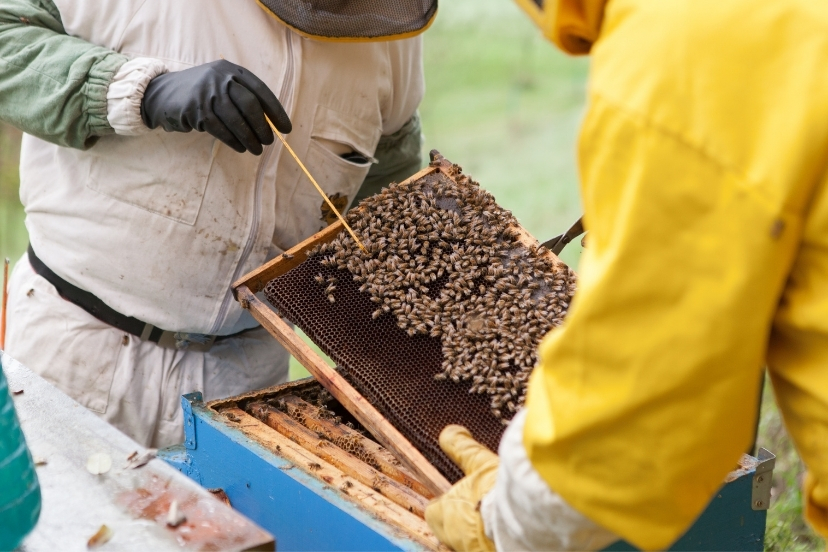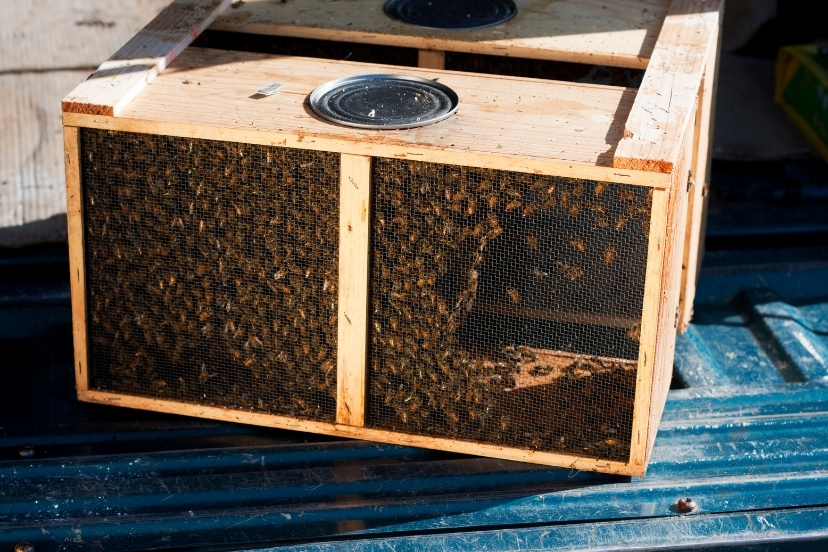When to add a brood chamber and when to harvest honey?by Don Marable
(Brownwood, Texas)
I installed package bees on April 7, 2011. They have filled six frames with honey and are working on frames seven and eight. When should I add another brood box, and when can I expect to harvest honey?
We had a very dry spring and do not have the normal abundance of wildflowers. Since the bees were installed it has rained and there are more blooms available. Our bees are situated in a ranch environment with no farm land within 10 or more miles. We have an abundance of honey mesquite trees, sunflowers, bee brush, and many wild flowers.
—
Hi Don,
Sounds like you’re off to a great start with your bees. Sounds like you’re in a great area for beekeeping, too. I used to keep bees in central Texas where there’s an abundance of mesquite trees. In good years, you can look forward to substantial harvests of high quality honey from mesquite.
With your bees working on 8 frames in the first super (brood chamber), I’d go ahead and add another now. It’s better to add space a bit early than to get behind. Here’s some more information about deciding when to give the bees more room.
Regarding the harvesting of honey, there are basically 2 approaches you can take:
1) Harvest honey early in the season, gambling that conditions will permit the bees to store up plenty for the winter during the summer and fall.
2) Wait until the bees have stored enough honey to see them through the winter, and then harvest any extra above that amount.
With approach #1, you can get some of the early spring honey, which is often some of the best. After you’ve been keeping bees awhile in your area, you’ll know what to expect in a normal season. (Or you can ask a beekeeper who’s experienced with keeping bees in your area.)
You’ll know, for example, whether the bees usually are able to store enough for winter from summer and fall honey flows. And if they are, then you’ll be more comfortable harvesting honey early.
Of course, you’ll still be taking a risk. Mother Nature might not cooperate, and the summer and fall flows that you normally get might not materialize. If you’ve harvested the early honey and the late season flows fail, you may end up having to feed your bees in the fall.
If it were me, I’d go with approach #2 when establishing a new hive. I’d wait until the bees were assured of having enough for the winter, and then harvest any excess above that amount.
For a newly established colony, it wouldn’t be at all unusual for the colony to not store any surplus above what they need for winter. In fact, I’d consider it a successful first season if the bees only store what they’ll need for the winter. Of course, it’s also possible that they’ll do better, and store some surplus for you to harvest.
How much do the bees need for the winter?
That varies considerably from region to region. And again, that’s something that experience will teach you.
But my guess is that for south Texas, a medium-depth super completely full would probably be adequate, and a deep super more than enough. If you know any experienced beekeepers in your area they can give you a more specific idea of what bees in your area need for overwintering.
I mentioned 2 approaches, or philosophies to harvesting honey. But there’s also another which is a compromise between the 2: You could harvest just a very small amount of honey now.
New beekeepers are often very anxious for their first harvest (heck, even old beekeepers like me are often anxious for the first harvest of the season!).
Taking a very small amount – maybe just 1 frame – can satisfy the craving, at least temporarily, for a taste of honey from YOUR BEES.
If you do take honey early – especially from a new colony – keep a close eye on them. The whims of weather can shut down honey flows instantaneously. And if a hive has built up a substantial population, once nectar stops coming in they can burn through their stored honey quite quickly if they have only a small supply.
Though it’s unlikely, it’s not impossible for a colony to starve to death right in the middle of summer.
Hope this helps, and I wish you continued luck with your bees.


